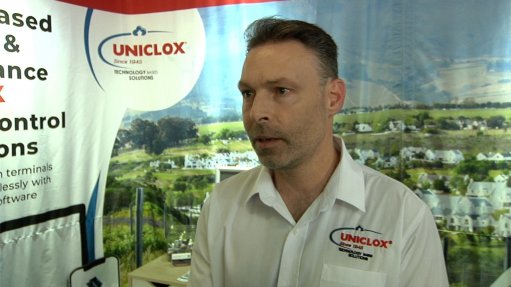The Age of QCTO is coming - is your organisation prepared to make the switch?
This article has been supplied as a media statement and is not written by Creamer Media. It may be available only for a limited time on this website.
By Daniel Orelowitz, Managing Director at Training Force
The Quality Council for Trades and Occupations (QCTO) is a Quality Council established in 2010 in terms of the Skills Development Act (Act 97 of 1998) as amended in 2008. Its role is to oversee the design, implementation, assessment, and certification of occupational qualifications, including trades, on the Occupational Qualifications Sub-Framework (OQSF). By June 2023, it will be the primary responsibility of the QCTO 4 for the oversight of the design, accreditation, implementation, assessment and certification of occupational qualifications, part-qualifications, and skills programmes in South Africa. Its role is critical in ensuring that South Africa has a qualified workforce to contribute to job creation through better opportunities. The QCTO signals major changes in the skills development space, and a significant number of organisations remain unclear as to how these new standards will affect them and their workforce. Continuous delays in rolling out these changes has resulted in mass confusion. It’s time to set the record straight so that we can move forward with training sector priorities: quality skills development that facilitates South African economic growth and recovery.
What is the QCTO and where does it fit in?
The QCTO is one of the three Quality Councils legislatively responsible for the educational paradigm in line with its constitution. Umalusi is the Quality Council concerned with the development and management of the quality of a sub-framework of qualifications for general and further education and training. The Council on Higher Education (CHE) is concerned with the promotion of a system of quality assurance for all higher education institutions, such as universities and colleges. The Quality Council for Trades and Occupations (QCTO) is charged with the establishment and management of an occupational qualification sub-framework, as well as providing guidance to skills development providers (both private and public) and assessment centres who must be accredited by the QCTO to implement occupational qualifications.
Change can no longer be ignored or avoided
It’s been more than a decade in the making, but change is finally coming. Working behind the scenes, the QCTO has gradually been building capacity as a stand-alone institution to take over its mandated functions from SAQA. “According to the QCTO, the registration end date for all 'historical' qualifications is 30 June 2023, with a phase-out period of one year for learners to still enrol up to and including 30 June 2024”, after which it will be necessary to move over to occupationally directed qualifications. Training, assessments, moderations, and achievements on these qualifications will only continue with learners registered before 30 June 2024. A teach out period will facilitate learners enrolled before 30 June 2024 until 30 June 2027, but statements of results and certificates will no longer be issued post 30 June 2027.
Renewed focus on specific skills
While change is always difficult and challenging, it’s important to remember that the new QCTO qualifications are intended to be specific in terms of the occupational profile of those who should benefit from the qualification to enhance the quality thereof. To facilitate this renewed functional focus, there has been a shift from generic training to specific skill sets. This is in line with the QCTO’s mandate to ensure that there are occupational qualifications that respond to South Africa’s skills development priorities to support labour market needs and state initiatives.
Making the switch
This will require transformation, right down to a business operating level. All Sector and Training Authorities (SETAs) report to the QCTO. SETAs are licensed until 2030 and will continue with the annual WSP/ATR, allocation of grants and funding, learnerships and the phasing out of legacy qualifications. Under the QCTO, they will also have the additional responsibility as Development Quality Partners (DQP) and Assessment Quality Partners (AQP) for occupational qualifications. Another major change that will take some getting used to is the programme duration for some learnerships. Some learnership cycles have now been increased to two years, in some cases five, depending on the qualification. As for SDPs, it will be critical for them to get accredited and to align themselves with AQPs, to move from the SETA space to the QCTO space as soon as possible to leverage their understanding of how best to make the transition. SDPs will need guidance in implementing and adapting to the new processes.
Adapt or get left behind
It’s essential for all organisations involved with skills development to ensure that they are positioned and ready for this change if they’re to survive the transition. A transition of this magnitude is going to have gaps and possible glitches, but now is the time for both industry and SDPs to work towards understanding these new processes and policies and perhaps challenge the implementation thereof where there is a lack of clarity or ambiguity. This is particularly important where companies are reliant on skills development programmes for Broad-Based Black Economic Empowerment (B-BBEE) level points. To this end, such organisations would be wise to partner with training provider partners that have already undertaken and achieved QCTO accreditation to lead the way.
Comments
Press Office
Announcements
What's On
Subscribe to improve your user experience...
Option 1 (equivalent of R125 a month):
Receive a weekly copy of Creamer Media's Engineering News & Mining Weekly magazine
(print copy for those in South Africa and e-magazine for those outside of South Africa)
Receive daily email newsletters
Access to full search results
Access archive of magazine back copies
Access to Projects in Progress
Access to ONE Research Report of your choice in PDF format
Option 2 (equivalent of R375 a month):
All benefits from Option 1
PLUS
Access to Creamer Media's Research Channel Africa for ALL Research Reports, in PDF format, on various industrial and mining sectors
including Electricity; Water; Energy Transition; Hydrogen; Roads, Rail and Ports; Coal; Gold; Platinum; Battery Metals; etc.
Already a subscriber?
Forgotten your password?
Receive weekly copy of Creamer Media's Engineering News & Mining Weekly magazine (print copy for those in South Africa and e-magazine for those outside of South Africa)
➕
Recieve daily email newsletters
➕
Access to full search results
➕
Access archive of magazine back copies
➕
Access to Projects in Progress
➕
Access to ONE Research Report of your choice in PDF format
RESEARCH CHANNEL AFRICA
R4500 (equivalent of R375 a month)
SUBSCRIBEAll benefits from Option 1
➕
Access to Creamer Media's Research Channel Africa for ALL Research Reports on various industrial and mining sectors, in PDF format, including on:
Electricity
➕
Water
➕
Energy Transition
➕
Hydrogen
➕
Roads, Rail and Ports
➕
Coal
➕
Gold
➕
Platinum
➕
Battery Metals
➕
etc.
Receive all benefits from Option 1 or Option 2 delivered to numerous people at your company
➕
Multiple User names and Passwords for simultaneous log-ins
➕
Intranet integration access to all in your organisation
















